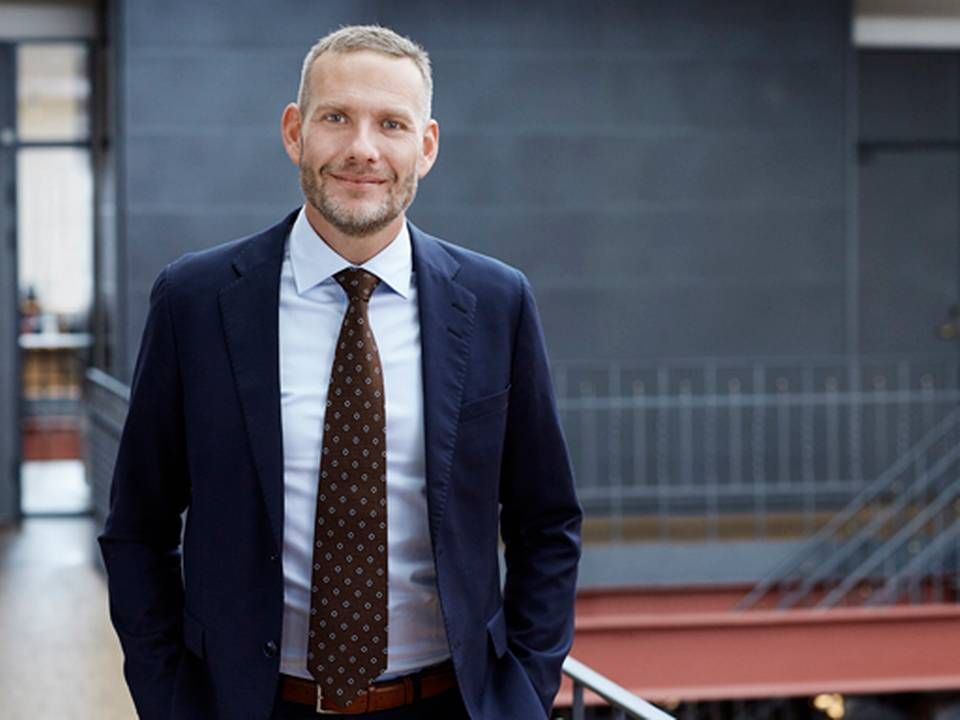Norden CEO: Dry bulk is above water once more

The past year was a turning point for Norden, which has now presented a profit for the first time since 2011.
CEO Jan Rindbo tells ShippingWatch about the 2017 report that the bulk market looks much better now than it has for a long time, particularly after a strong finish to 2017.
"We have returned to more normalized long-term levels in dry bulk. We're clearly in a better place and, as an industry, we're confident in saying so now," Rindbo tells ShippingWatch.
Norden delivers USD 28 million profit for 2017
He stresses that the order book currently contains the lowest planned influx of new ships over coming years – a level not seen since the late 1990s.
And Supramax bulk vessels, one of the carrier's most utilized ship types, are currently earning daily rates of USD 11,000 to USD 12,000.
"The rates still need to rise more before we can talk about actual good returns. Now, as a market, we're above water once more with a global economy at a pretty fast pace and very low fleet growth over the next few years. We're at a different place on the market curve, there's no doubt about that," Rindbo tells ShippingWatch.
While the 2017 profit marked significant improvement relative to 2016, performance at the end of the year disappointed analysts, reports Ritzau Finans. The carrier delivered EBITDA in this period of USD 38.5 million, and analysts had projected USD 42 million, according to the analysts cited by Ritzau Finans.
In the wake of the report, the Norden share fell 3.1 percent by Tuesday afternoon.
Norden established a new business in dry bulk last summer.
The company split its dry bulk business into two units last summer with the creation of an operator division and an owner division. The Dry Operator business was established to be able to more quickly adapt to market changes. The division combines cargoes with its own ships and its chartered vessels in the short term.
Norden's head of dry cargo targets growth with new venture
The Dry Operator business, headed by Christian Vinther Christensen, delivered an adjusted profit of USD 14 million in the fourth quarter.
"We see huge growth potential in the Dry Operator business for the next year. We can grow here and have a business that doesn't need to take very big market positions that are hard to change, but instead be more active in the near market and react to the signals that come," says Rindbo of the operator business.
For 2018, Norden expects a combined adjusted result in the range of USD 10 to 50 million, which is a "disappointing" guidance, says Jyske Bank according to Ritzau Finans.
The operator business is expected to contribute USD 10 to 20 million, while the profit in the Dry Owner business is expected to land in the range of USD 15 to 25 million, according to plan.
More sustainable recovery
The new operator business can for instance react to announcements from countries around the world, says Rindbo. One example is China, where growth and imports of steel, coal and aluminum to the country have a big impact on the dry bulk market.
In the past few days, US President Donald Trump has sparked controversy in the shipping industry. Trump announced last week that import tariffs would be implemented in the US – 10 percent on steel and 25 percent on aluminum.
These are products typically freighted by bulk carriers, but Rindbo downplays the significance of a potential tariff barrier on the market.
"On their own, I don't think these tariffs on steel and aluminum will have a big impact. These two products make up a pretty small portion of the total dry cargo market with freight to the US. But of course it's a concern and any type of trade war is negative for global trade."
A large part of the growth is still in China, which Rindbo says constitutes 45 percent of the market, and where imports of dry bulk cargo have been high for some time.
"Our expectation is definitely that China cannot continue with these very high growth rates. It's natural that the growth will slow down a bit, but now it's happening at a time where fleet growth has slowed way down," says Rindbo.
If China cannot keep up the pace, how sustainable is this dry bulk uptick?
"We've seen in 2017 that this global upturn in the world economy has taken off. So it's not just China driving this market. It's more broadly based and in that sense it's positive."
English Edit: Gretchen Deverell Pedersen
Related articles
Norden boosts presence on North American West Coast
For subscribers
Norden raises profit guidance for 2017
For subscribers


















